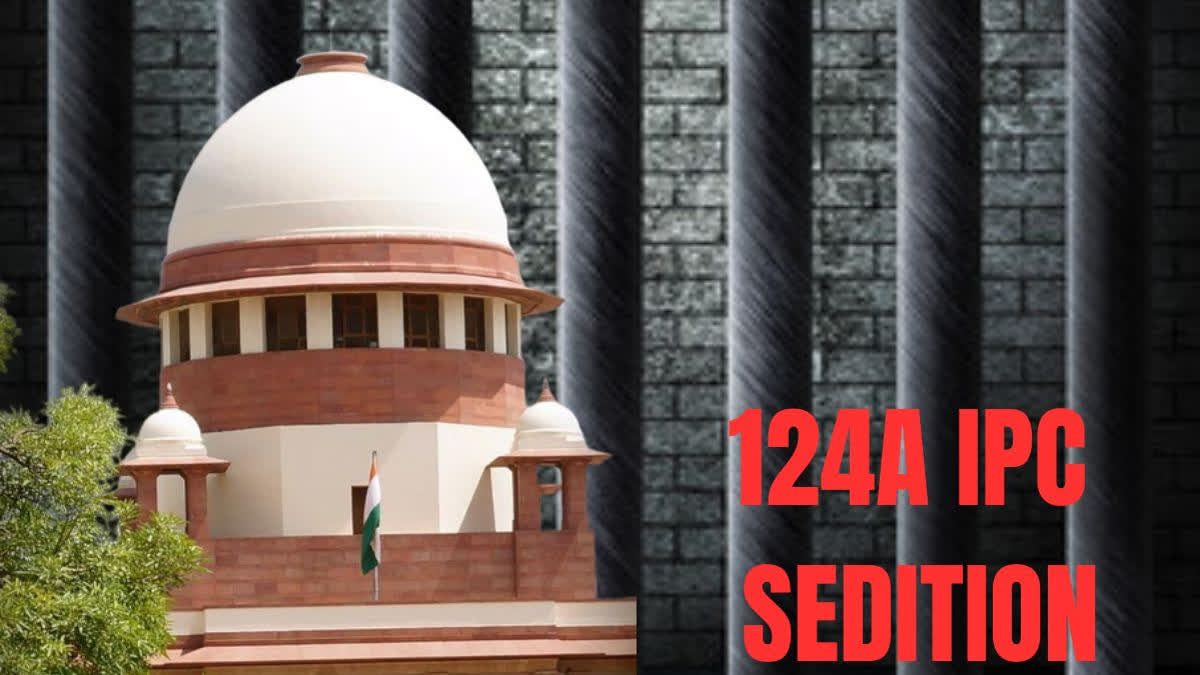New Delhi: The government is at the advanced stage of consultation on reexamining the sedition law, the centre told the Supreme Court on Monday in pleas challenging the colonial-era law. Following the government's response, the apex court deferred hearing on the batch of pleas to August.
A bench of Chief Justice D Y Chandrachud and Justice J B Pardiwala noted the submission of Attorney General R Venkataramani that the government has initiated the process to reexamine section 124A of the Indian Penal Code. The bench posted the hearing on the matter in the second week of August. The batch of pleas challenged the constitutional validity of the penal provision.
Venkataramani said the consultation process has been at the advance stage and before it goes to the Parliament, it will be shown to him. "Kindly post the matter for further hearing after the Monsoon session of Parliament," he urged the bench. At the outset, senior advocate Gopal Sankaranarayanan urged the bench to constitute a bench of seven judges for adjudicating the issues.
The bench said that even if the matter has to go to seven judges, it will have to be first placed before a five-judge bench. On May 11 last year, in a path-breaking order, the top court had put on hold the colonial-era penal law on sedition till an "appropriate" government forum re-examines it and directed the Centre and states to not register any fresh FIR invoking the offence.
Besides the lodging of FIRs, ongoing probes, pending trials and all proceedings under the sedition law across the country will also be in abeyance, the top court had ruled. In its significant order on the law that has been under intense public scrutiny for its alleged use as a tool against expressions of dissent, including on social media, the bench spoke of the need to balance the interests of civil liberties and citizens with that of the State.
"This Court is cognizant of security interests and integrity of the State on one hand, and the civil liberties of citizens on the other. There is a requirement to balance both sets of considerations, which is a difficult exercise. "The case of the petitioners is that this provision of law predates the Constitution itself, and is being misused," the top court had said. Sedition, which provides a maximum jail term of life under Section 124A of the IPC for creating "disaffection towards the government", was brought into the penal code in 1890, 57 years before Independence and almost 30 years after the IPC came into being.



